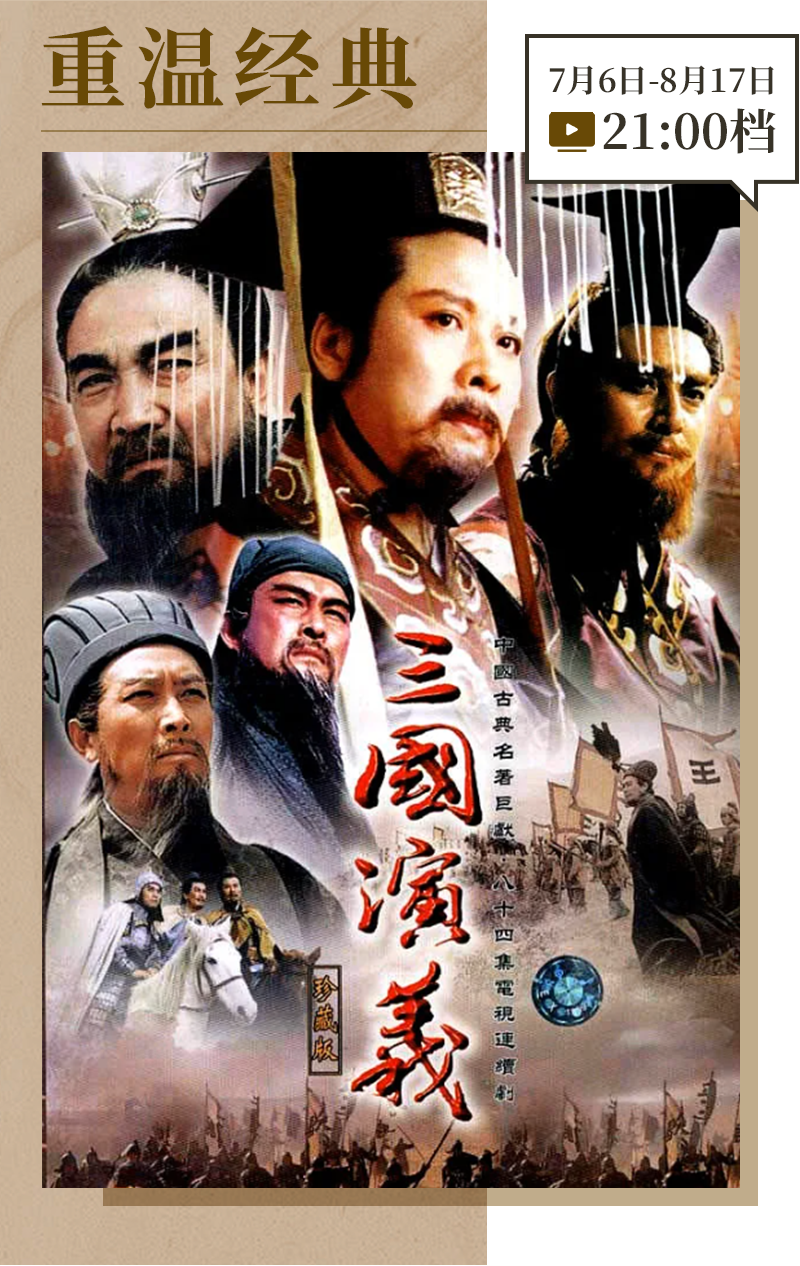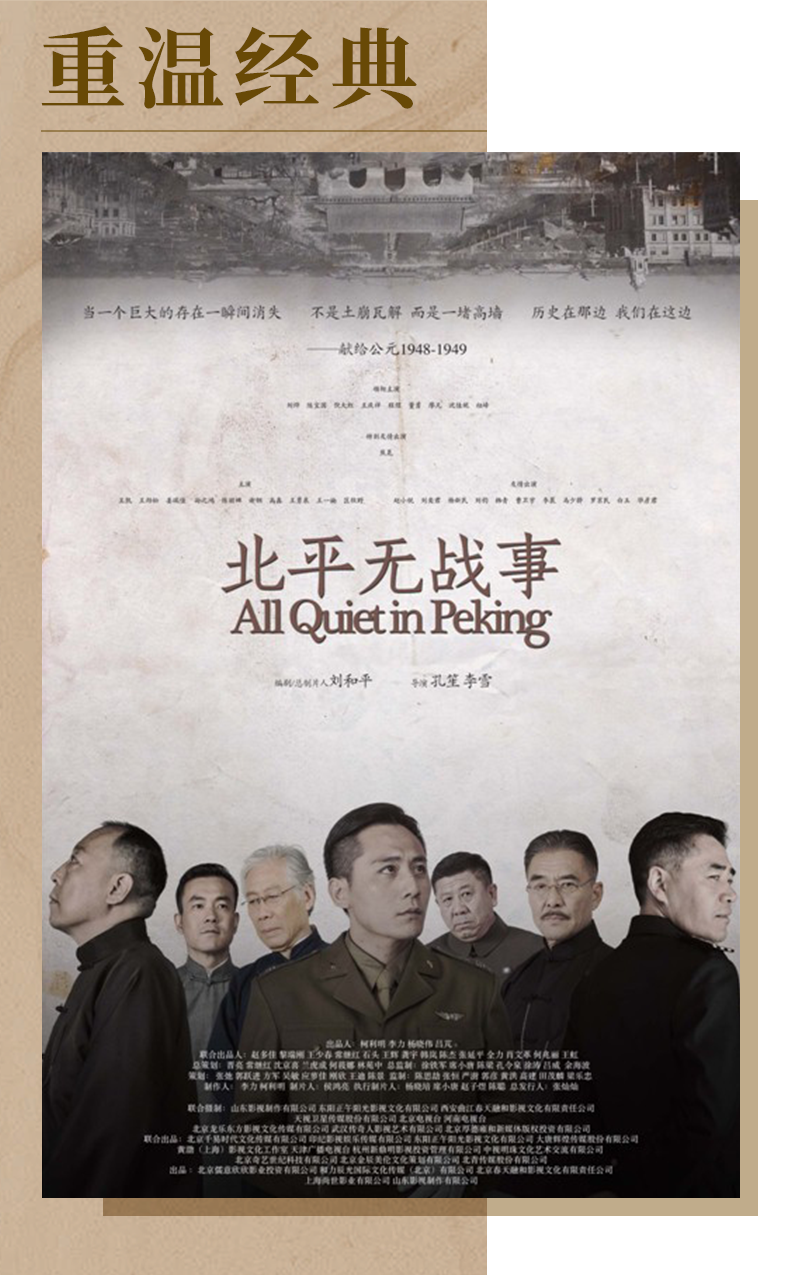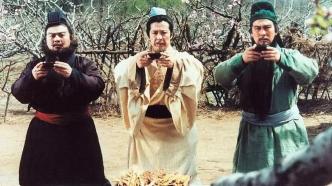
Editor's Note: The 1994 version of "Romance of the Three Kingdoms" is currently being broadcast on the "Revisiting Classics" channel. The famous literary critic Zhong Chengxiang published an article in "China Television" after the show was broadcast. With his rich knowledge, profound vision and unique insights, he reflected on how to make a good adaptation of a TV series "faithful to the original" from the perspective of literary criticism.
The relevant articles are now republished in the hope that by revisiting the literary and artistic reviews of classic works, the level of television literary and artistic creation will continue to improve amid the debate.
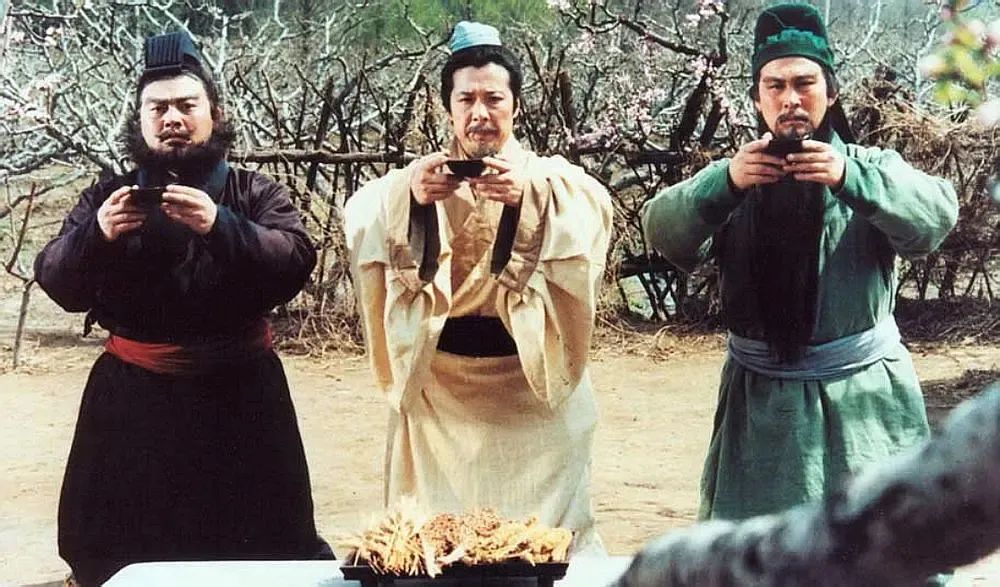
Stills from Romance of the Three Kingdoms
The Romance of the Three Kingdoms was brought to the screen, and it played an indispensable role
The long-awaited TV series Romance of the Three Kingdoms has finally been released. It is normal that there are different opinions and mixed reviews. I think that it is much more fortunate for a work, especially one with high expectations, to receive a strong response after its release than to have few people interested in it.
Generally speaking, I am a fan of the TV series Romance of the Three Kingdoms. Today, the newly emerging art of TV series has come to dominate the literary world, with a wide coverage, great influence, and strong penetration that other art forms cannot match. Therefore, adapting the classic masterpiece and bringing Romance of the Three Kingdoms to the screen and into thousands of households is indeed a feat of popularizing and promoting our country's excellent national culture, and it is an invaluable contribution!
The cultural connotation and aesthetic taste of TV dramas are closely related to the improvement of the overall spiritual quality of the nation. High cultural connotation and aesthetic taste will produce positive effects; conversely, negative effects will be produced. TV drama creation should strive to expand the positive effects and minimize the negative effects. Adapting classical masterpieces is a shortcut with great practical significance. Classic masterpieces such as "Romance of the Three Kingdoms", with their rich cultural connotations and high aesthetic taste, have laid a solid foundation for TV drama adaptation.
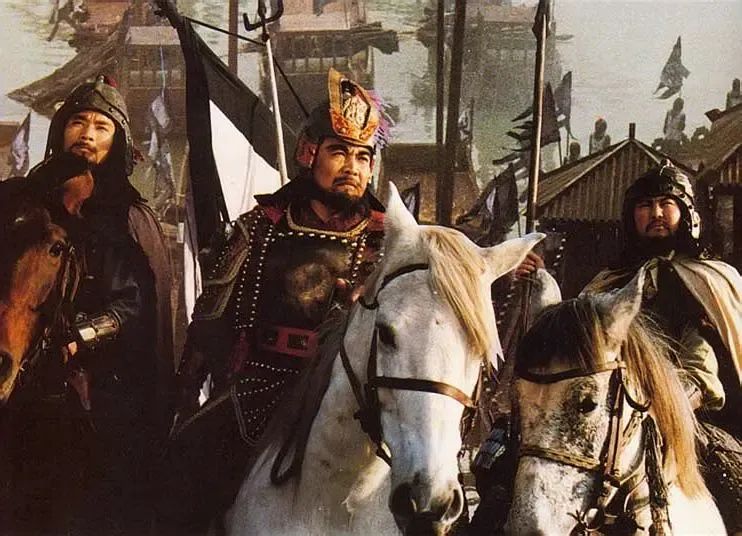
Stills from Romance of the Three Kingdoms
The secret of success: the transformation from literary thinking to audio-visual thinking
Needless to say, the 84-episode TV series Romance of the Three Kingdoms has achieved varying degrees of artistic success in its adaptation. I think the secret lies in the difference in the degree of transformation from literary thinking to audio-visual thinking.
The transition from the literary thinking of novels to the audio-visual artistic thinking of TV dramas is a transformation of two different ways of thinking. The structural principle of novels is time, while the structural principle of TV dramas is space. The two are exactly opposite in terms of thinking structure and narrative style. Mr. He Qifang, a famous literary theorist and aesthetician, and Mr. Zhong Dianwei have both made insightful remarks on the topic of adapting novels to movies - a smart adapter should melt and smash the mountain of art created by the literary thinking of novels, and just treat it as a pile of unprocessed materials, and then use the audio-visual thinking of movies to reshape this pile of materials into a mountain of film art.
Here, "dissolving and shattering" is the premise, and "reshaping" is a new aesthetic creation, and the same is true for TV series. From this perspective, it can be said that the more exciting parts of the TV series "Romance of the Three Kingdoms" are all because the relevant chapters in the original novel were first "dissolved" well and "shattered" thoroughly, and then successfully "reshaped" according to the audio-visual thinking of the TV series.
Thinking transformation: Be true to your own understanding of the soul and spirit of the original work
There is a saying to defend those adaptations that have not successfully achieved the transformation of thinking from literature to TV dramas, which is called "being faithful to the original work". Yes, since it is an adaptation of a classic literary masterpiece, of course it should strive to be "faithful to the original work", otherwise it would be a waste of the masterpiece! But this "faithfulness to the original work" should be understood scientifically. I think that "faithfulness to the original work" in the original sense is impossible. Who among the adapters living today can completely overlap their artistic thinking with the text created by Luo Guanzhong hundreds of years ago?
The so-called "faithfulness to the original work" is to be accurately expressed as the adapter's "faithfulness" to his or her understanding of the original work - the most essential and important thing here is the adapter's understanding of the soul and spirit of the original work. This must be "faithful"; otherwise, what is the point of "adaptation"? But if, as a certain article says, one must be "faithful" to the "story framework, character relationships and character personalities and their direction" of the original novel, I'm afraid it will be impossible to truly complete the transformation from literary thinking to TV drama thinking, which is to "dissolve", "smash" and "reshape".
In the history of film, there have been no less than 20 adaptations of Carmen and 9 adaptations of Uncle Tom's Cabin. All of these adaptations claim to be "faithful to the original", but each adaptation has its own unique characteristics. This also proves that what different adapters in different times and different social and cultural backgrounds call "faithful to the original" is actually "faithful to their own understanding of the soul and spirit of the original".
In fact, the adapters should not forget to "be faithful to the special laws of TV drama art" and "be faithful to their own aesthetic advantages, aesthetic style and aesthetic personality". Only in this way can they truly realize the transformation from literary thinking to audio-visual art thinking.
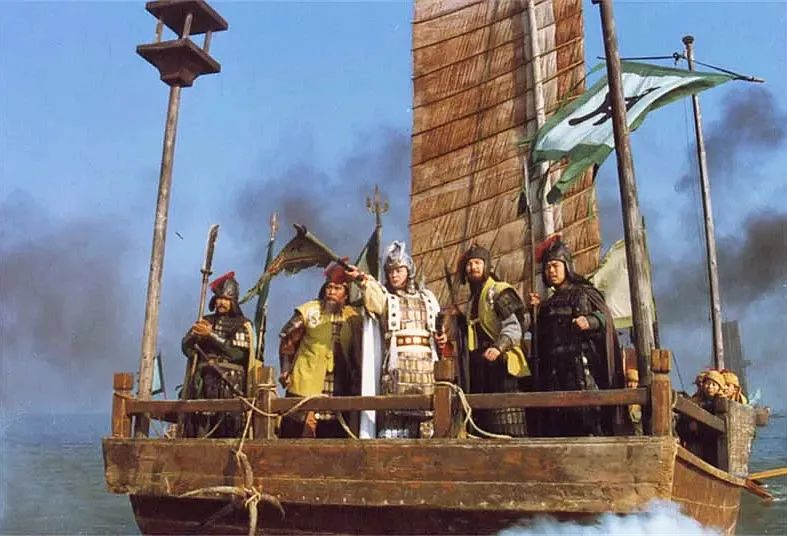
Stills from Romance of the Three Kingdoms
[Appendix: The original text was published in the 2nd and 4th issues of China Television magazine in 1995]
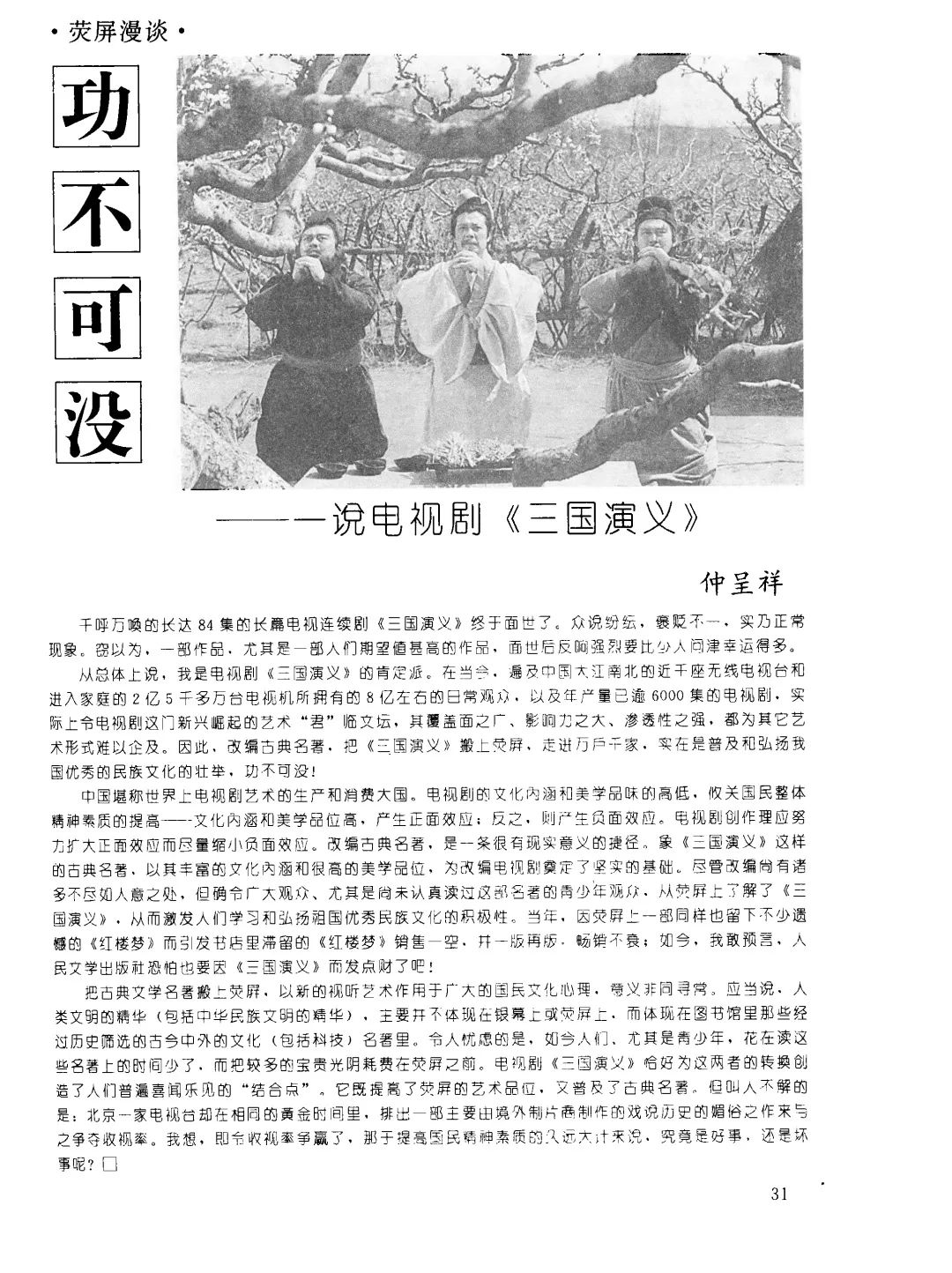
▲ Issue 2
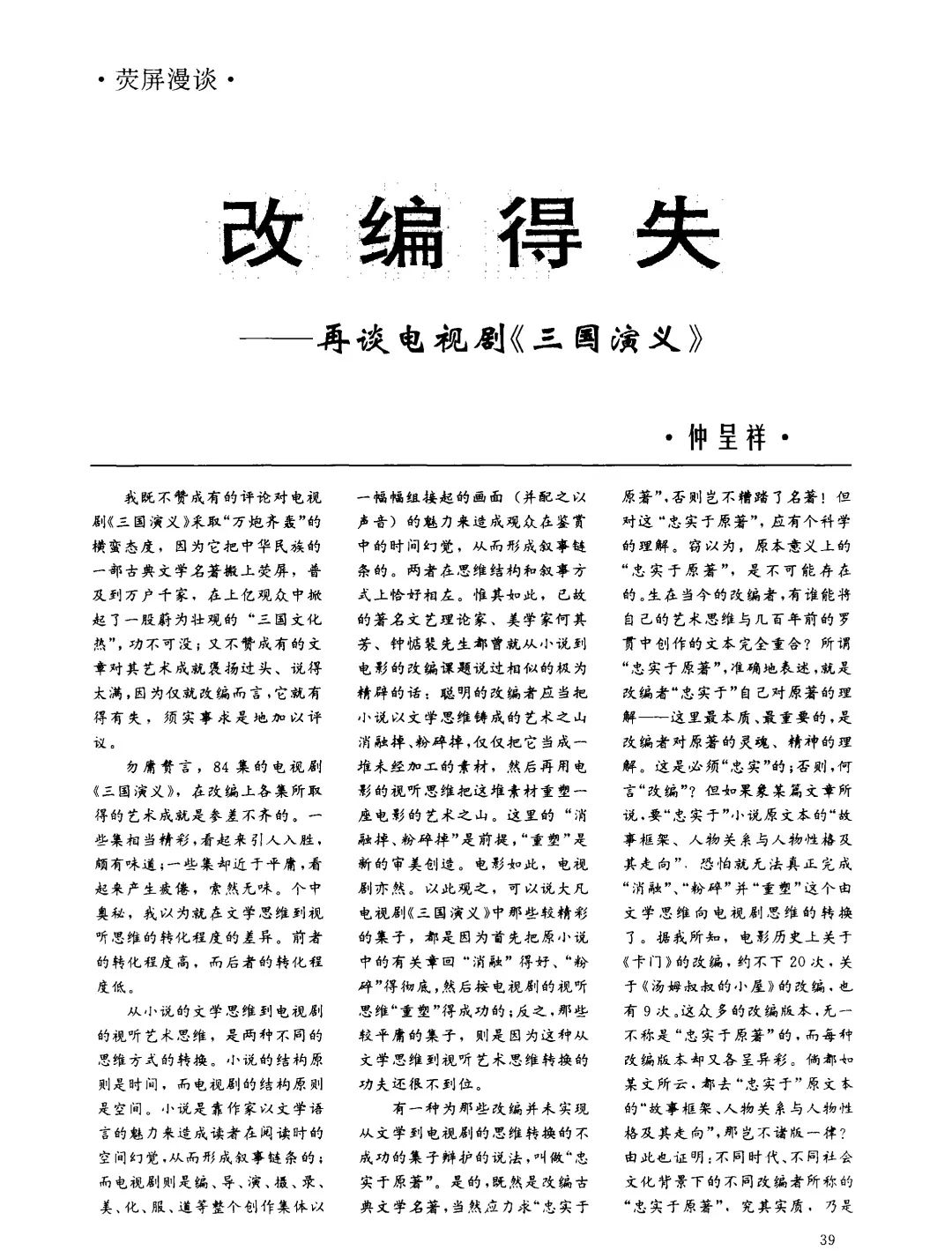
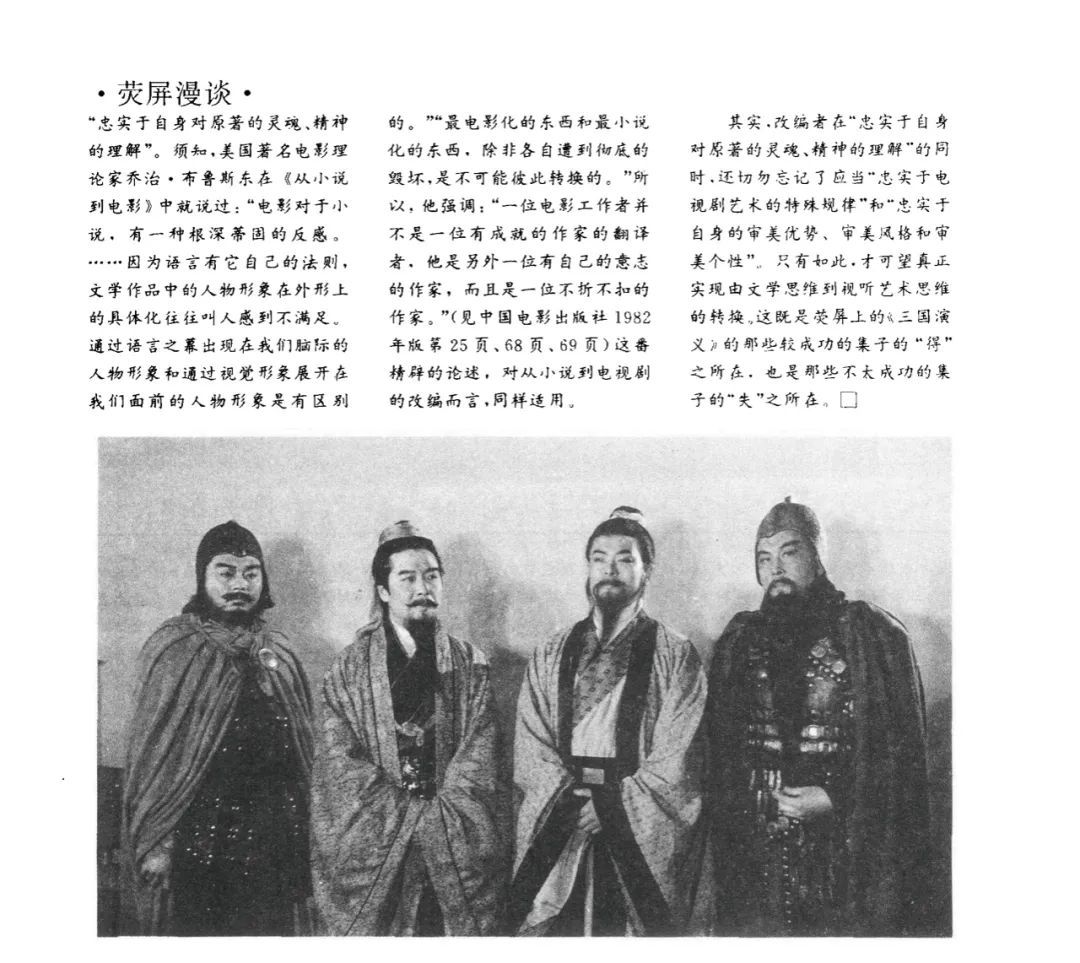
▲ Issue 4
